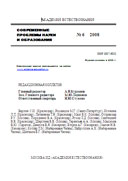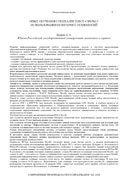PDF-версия статьи


|
Games are often used as short warm-up activities or when there is some time left at the end of a lesson. Yet, as Lee observes, a game "should not be regarded as a marginal activity filling in odd moments when the teacher and class have nothing better to do". Games ought to be at the heart of teaching foreign languages. Rixon suggests that games be used at all stages of the lesson, provided that they are suitable and carefully chosen. At different stages of the lesson, the teacher´s aims connected with a game may vary: All authors referred to in this article agree that even if games resulted only in noise and entertained students, they are still worth paying attention to and implementing in the classroom since they motivate learners, promote communicative competence, and generate fluency. However, can they be more successful for presentation and revision than other techniques? The following part of this article is an attempt at finding the answer to this question. Games also help the teacher to create contexts in which the language is useful and meaningful. The learners want to take part and in order to do so must understand what others are saying or have written, and they must speak or write in order to express their own point of view or give information."The need for meaningfulness in language learning has been accepted for some years. A useful interpretation of ´meaningfulness´ is that the learners respond to the content in a definite way. If they are amused, angered, intrigued or surprised the content is clearly meaningful to them. Thus the meaning of the language they listen to, read, speak and write will be more vividly experienced and, therefore, better remembered. Games are highly motivating because they are amusing and interesting. They can be used to give practice in all language skills and be used to practice many types of communication.
BIBLIOGRAPHY
1. Azar B.SH. Fun with grammar. New York 2000.
2. Ersoz Aydan. The Internet TESL Journal, Vol. VI. No 6, June 2000.
3. Rixon.S 1981. How to use games in language teaching. London Macmillan Publishers.
ОПУБЛИКОВАНО
Lecturers: Shokhakhov I.S., Imangalieva D.B., Yemkulova Z.А., Berdauletova Sh.Zh. THE ROLE OF GAMES ON LANGUAGE LESSONS. // Современные проблемы науки и образования - 2014.-№6. (приложение "Педагогические науки"). - C. 12